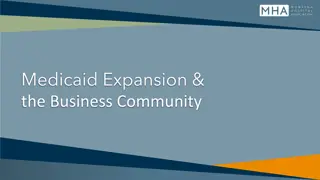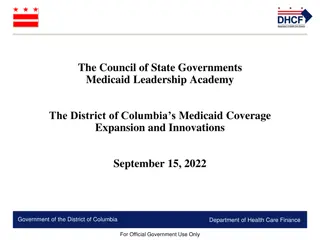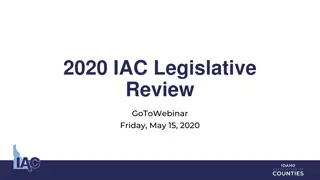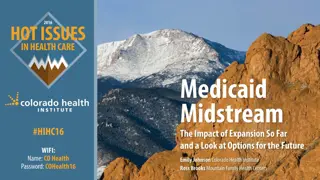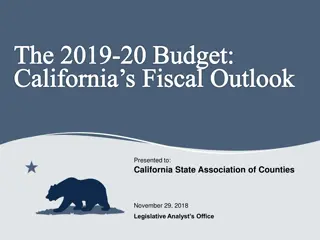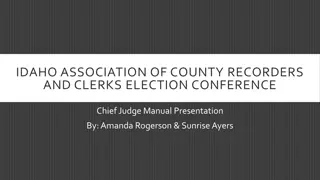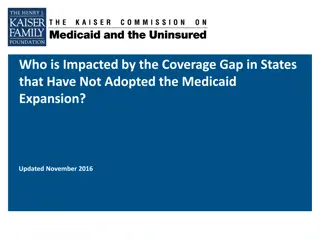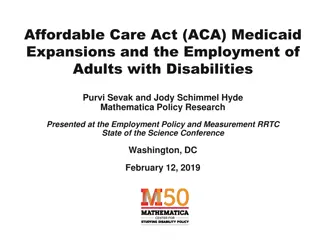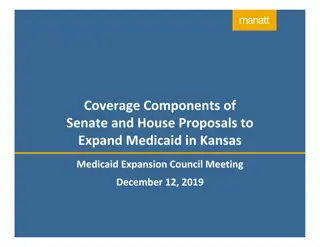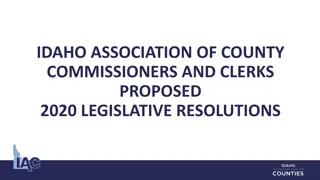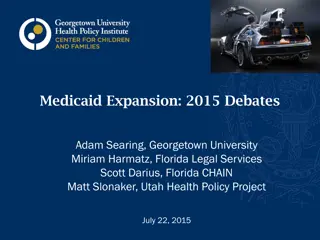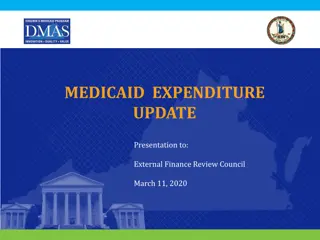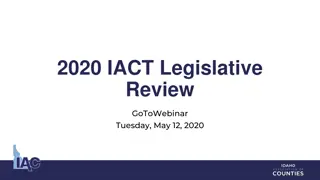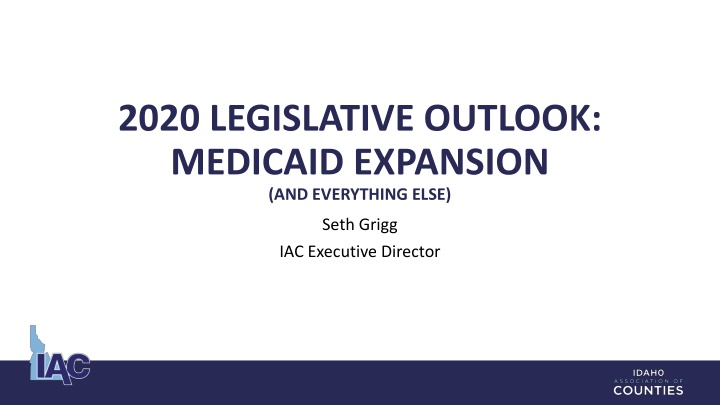
2020 Legislative Outlook: Medicaid Expansion in Idaho
Medicaid in Idaho is set to expand starting January 1, 2020, providing coverage to more individuals. Senate Bill 1205 introduces waivers for work requirements and other provisions, with uncertainties regarding funding and waivers. An Equitable Assessment Committee is tasked with reviewing costs related to the expansion.
Download Presentation

Please find below an Image/Link to download the presentation.
The content on the website is provided AS IS for your information and personal use only. It may not be sold, licensed, or shared on other websites without obtaining consent from the author. If you encounter any issues during the download, it is possible that the publisher has removed the file from their server.
You are allowed to download the files provided on this website for personal or commercial use, subject to the condition that they are used lawfully. All files are the property of their respective owners.
The content on the website is provided AS IS for your information and personal use only. It may not be sold, licensed, or shared on other websites without obtaining consent from the author.
E N D
Presentation Transcript
2020 LEGISLATIVE OUTLOOK: MEDICAID EXPANSION (AND EVERYTHING ELSE) Seth Grigg IAC Executive Director
MEDICAID EXPANSION Pursuant to Proposition 2, Medicaid will be expanded on January 1, 2020 to cover Idahoans making less than 138% of the federal poverty level (FPL). Senate Bill 1171 appropriated $19.9 million in state funding and $177.4 million in federal funding for FY2020 (six months) Senate Bill 1205 requires the Department of Health and Welfare to seek certain waivers from federal Medicaid law.
SENATE BILL 1205 Waivers requested: IMD Waiver: Allow certain standalone psychiatric hospitals to accept Medicaid for mental and substance abuse disorders. Work Requirement (1): Require all able bodied adults to work at least 20 hours a week to qualify for Medicaid. Those that fail to work will be required to pay a copay for medical procedures. Work Requirements (2): Require all able bodied adults to work at least 20 hours a week to qualify for Medicaid. Those that fail to work will be removed from Medicaid expansion for up to two months. NOTE: There are many exemptions for work requirements, including for the disabled and ill, those caring for the disabled or ill, parents with children in the home, those over 59, etc.
SENATE BILL 1205 Waivers requested (cont d): Grant Idahoans making between 100% and 138% of the FPL the option to purchase subsidized insurance on the exchange in lieu of enrolling in Medicaid expansion. Require individuals seeking family planning services outside of their medical home to receive a referral for family planning services.
MEDICAID EXPANSION UNCERTAINTY Waivers must be granted by December 31, 2020 If waivers are not granted, Medicaid expansion will proceed without eligibility sideboards (i.e.: no work requirements) Work requirement in S1205 are likely to be challenged in court County indigent and state CAT programs remain in place (for now) Medicaid Interim Committee will review long term funding options and make recommendation to Legislature in 2020 Counties may have to pay for some of the costs of enrolling county residents in Medicaid expansion
EQUITABLE ASSESSMENT OF COSTS RELATED TO MEDICAID EXPANSION INTERIM COMMITTEE Co-chairs: Rep Fred Wood, Sen Jim Rice Senate: Burtenshaw, Lent, Jordan, Souza House: Addis, Blanksma, Green (18), Raybould Non-Voting Members: Todd Smith, Jeff Taylor, Dave Jeppesen Meetings: June 17th, August 9th, September 13th, November 4th
INTERIM COMMITTEE AUTHORIZATION Undertake and complete a study to make recommendations regarding the effects of Medicaid eligibility expansion on existing programs that serve medically indigent individuals.
POSSIBLE INTERIM COMMITTEE STUDY AREAS Impact of Medicaid expansion on existing county and state programs, Options to reduce, phase out, or eliminate county indigent and CAT programs, Savings to each county and the state from a reduction or elimination of such programs, and Equitable means of assessing each county for its share of funding for Medicaid expansion.
POSSIBLE SOLUTIONS Diversion of state revenue sharing payments to counties Counties pay 45% of the cost of enrolling county residents in Medicaid expansion Combine current expense, charity, and justice levies Eliminate county indigent and state CAT programs
CHALLENGES Inequitable funding expectations Need based (indigent) vs entitlement (Medicaid) programs Mental health and substance abuse treatment Double dipping
IAC WORKING GROUP IAC has created a small working group of county commissioners and clerks. Working group will monitor and evaluate work of interim committee and formulate recommendations to be shared with interim committee, IAC membership, and legislators.
WHAT ELSE TO WATCH FOR IN 2020 Administrative rules Business personal property tax exemption Highway district consolidation Medicaid expansion funding Revenue Sharing Grocery Tax Online Notice School funding State budget/revenue collections State prisons funding Transportation funding Tucker v Idaho Eller v Idaho


